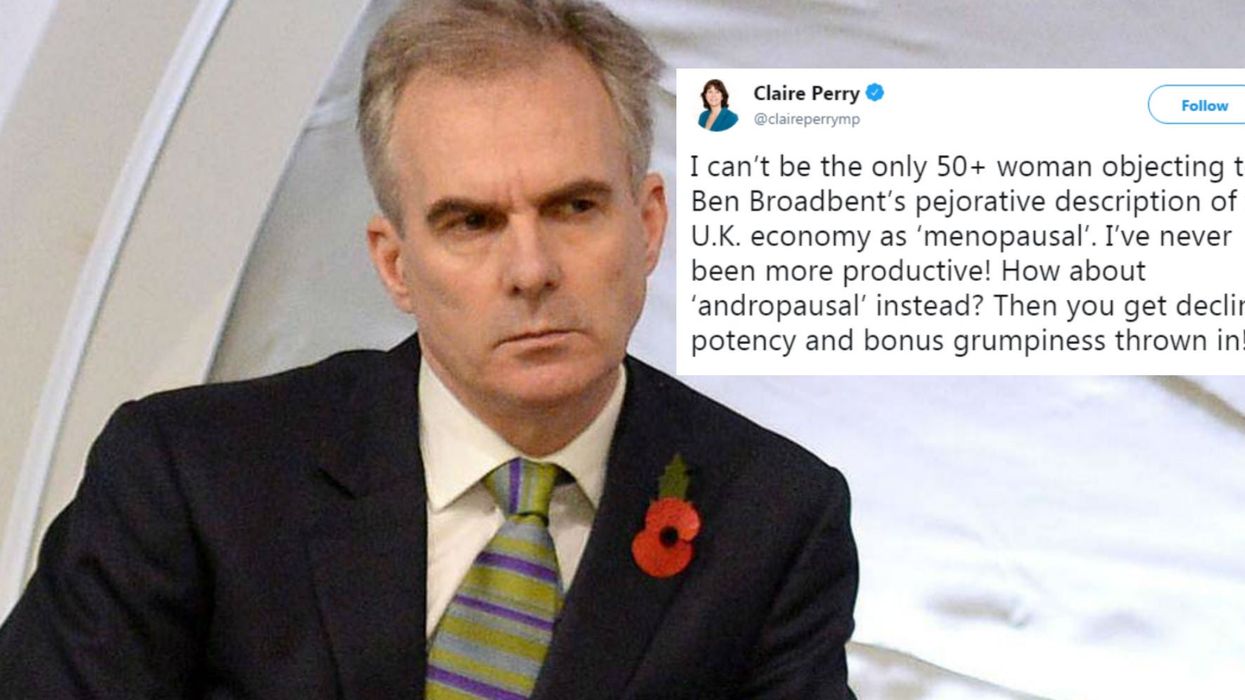News
Mimi Launder
May 16, 2018

Picture:
AFP/Getty
Only when Lauren Chiren left her job in her early 40s did she realise why she had suffered with anxiety, poor memory, sleeplessness and problems with concentration.
No, she wasn't suffering from early onset dementia, as she briefly suspected. The mysterious change in her demeanour, increased reliance on her team and sudden exclusion in meetings were down to an early menopause.
Her fast-paced, ten-meetings-a-day financial services career was male-dominated - but, firmly part of the next generation of leaders, that never proved problematic until symptoms of her early menopause began. She explained to indy100:
No one was reaching out to ask me what was wrong, but rather, sidelined me.
I know from speaking to other women of my age and beyond, that they're finding it challenging when looking for new roles in business. Despite their years of wisdom and wealth of knowledge and experience, they are overlooked in favour of younger applicants.
Whether that's because younger people are a cheaper workforce, or if its due to societal perception that a woman no longer has the same value once she starts to show signs of ageing, I don't know.
So, Lauren - who now runs Women of a Certain Stage, an organisation that helps women to maintain peak performance throughout menopause - wasn't impressed when she heard of the recent scandal embroiling the Bank of England.
Ben Broadbent, a Bank of England deputy governor, issued a swift apology after calling the UK economy “menopausal” in an interview with The Daily Telegraph, saying that this was a “poor choice of language”.
Lauren published an open letter explaining why using "menopausal" as a metaphor is so problematic. She wrote:
This is another example of gender power and ignorance, and placing blame on women for something that they have no control over. It is appalling, that in 2018, women’s issues are still being used as metaphors, and scapegoats, to avoid actually addressing the underlying issues that are really causing slumps in the economy.
She told indy100 that the attitudes and behaviour that dismiss older women are rife:
When I read that a senior male figure in business, or in fact any leader in business, makes a comment relating the economy to menopause, and references the word in a way to showcases that something is 'past its peak', it's offensive at best.
At worst, it reinforces the attitudes and behaviour that people have towards older women, and women who are going through menopause or have gone through menopause.
This viewpoint isn't limited to senior male readers – it's rife across the working population, and the public's reaction to it clearly shows a need for change on how we talk about and treat such important issues.
Several politicians have also tweeted their criticism of Broadbent, including Britain's minister for energy and clean growth Claire Perry.
Conservative MP Rachel Maclean and Labour's Diana Johnson were similarly unimpressed.
As was former Bank of England policymaker Dame Kate Barker.
Meanwhile, the Women's Equality Party was equally critical.
Top 100
The Conversation (0)













